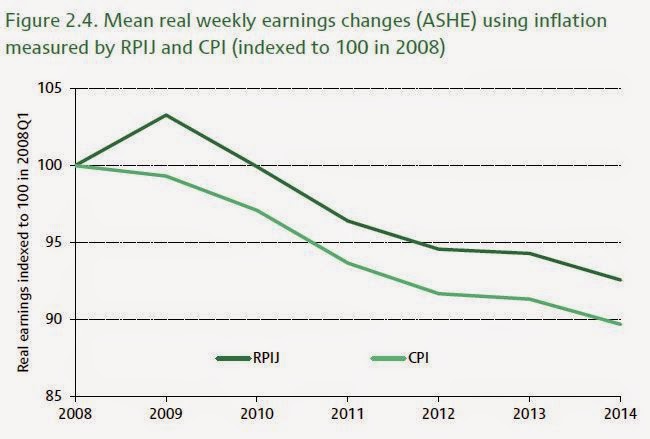We have recovered from the Financial crisis. Yes we have –
it’s official. Well sort of, we currently have employment levels back at 2008
levels - 73%.
Whoopee, let’s celebrate, let
joy be unconfined amongst the masses pop the champagne corks and...ehh hang on.
If we have recovered why are so many of us so much worse off?
Well the reason is that while jobs numbers have recovered –
wages haven’t. For most of us this is easily verifiable by checking the bank
balance a couple of days after we’ve been paid and seeing what is left after the
bills have come off. For anyone entertaining the idea that “It must just be
me” – it’s not. The Institute of Fiscal Studies have just published a study of Earnings since
the recession and it’s as cheery a read as you’d expect.
While this isn’t a happy picture for anyone – it is more
severe for some sections of the workforce than others. Specifically young
people have suffered most
There are a number of reasons for this decline in the value
of wages. Frozen or almost frozen pay is probably the most obvious. But it’s far
from being the only one. We’ve also seen a increase in part time contracts and
zero hour contracts “under employment” in the jargon of economists.
Now it doesn’t have to be like this. Part of the reason for
underemployment is a shortage of demand in the economy. This could be tackled
through a policy of wage
led growth.
Investment in public services could and should be an important part of this.
With the promise of more austerity
at UK level and tax cutting obsessed
Government at Scottish level, this isn’t exactly the current agenda.
So you'll forgive us
for not being exactly celebratory...but employment figures like this aren't the
occasion for cracking open the champagne more like a can of Tesco value lager.



